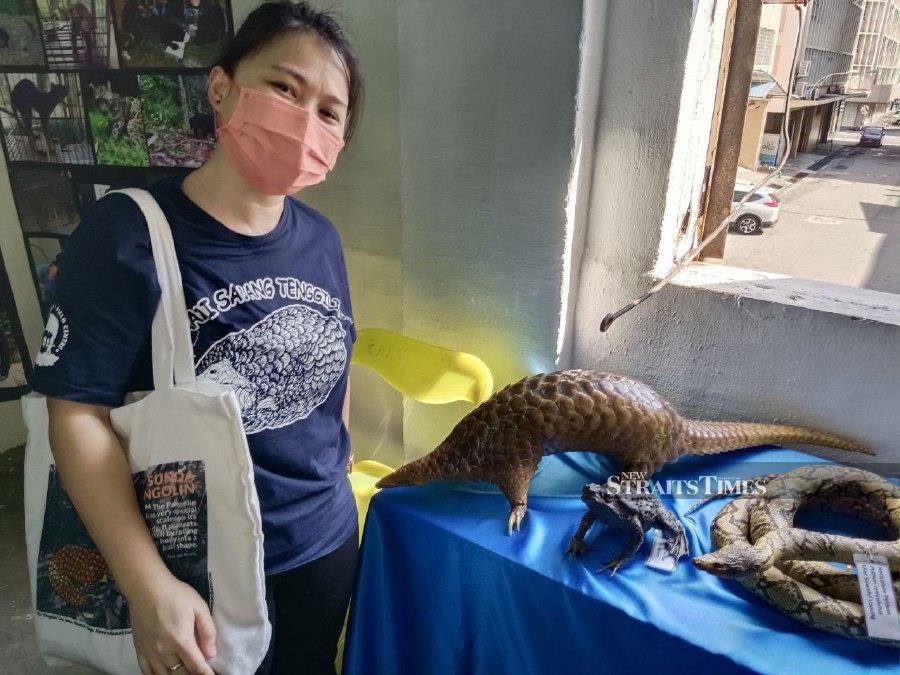By Olivia Miwil - April 17, 2022 @ 11:45amv
KOTA KINABALU: The pangolin is facing threats beyond being poached and consumed, said Danau Girang Field Centre research officer Elisa Panjang.
"In the past, poaching and being eaten were the most common threats for the pangolins.
"But now the human-pangolin conflict is the new threat. Pangolins can live in human areas, thus it poses a danger to them.
"They are also prone to (being killed) in road accidents or attacked by pet dogs should they enter housing areas," she said, when met during the 1StopBorneo Wildlife Pangolin Day exhibition at the WOW 1.0 SAG Art Space here yesterday.
Elisa added that among the recently rescued or surrendered pangolins, some of them were alive but injured after being attacked.
Based on her preliminary research findings, it was found that the pangolins tend to move out from the forests and often end up at areas such as oil palm plantations.
"When we see pangolins at an oil palm plantation, do we send them back to the forest? We should not, as be based on scientific data, the pangolins will travel back to the plantation.
"It is the same with orangutans, they are being rescued in plantations and brought back to the forest. It is not sustainable; we need to accept pangolins and other wildlife.
"By right, we should actually promote living together (with the pangolins)," she said, adding that the key solution is to have plantation companies on the side of conservation efforts in order to coexist with the wildlife.
She added that plantation companies could play their role in funding conservation works and educating their workers to leave the animals alone at the estates.
When asked whether there was a latest population survey for the most trafficked mammal, Elisa said lack of information made conservation for pangolins more difficult.
"However, we know the threats and they are severely declining in Sabah. For me, I think we need to focus on taking actions, both short- and long-term solutions (to prevent its extinction)."
For the long term, she suggested continuous education and public awareness including through social media and focusing on the people in the interior areas.
As for the immediate solutions, Elisa said the government could formulate policies to protect wildlife while the authorities should implement frequent enforcement activities including checking restaurants selling and serving the totally protected species.

Comments
Post a Comment